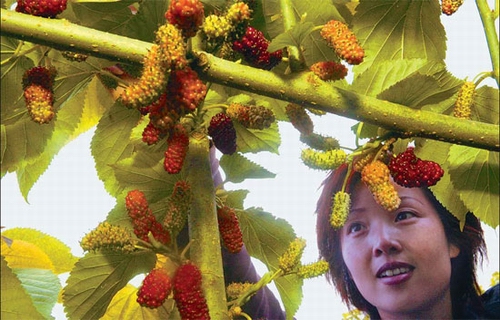
Zhao Fenna, a farmer in her 50s, is doing a roaring trade in the market despite selling vegetables and other agricultural produce that are smaller, more expensive and less pristine than those of her rivals.
"That's because I am selling 'green', 'ecological' products from Chongming," she said.
Chongming county, the biggest offshore island and also the least industrialized region within the city limits of Shanghai, actively promotes its organic agricultural products.
"It turns out that our food, including cauliflowers, asparagus and organic rice, is highly popular in the market. Chongming has become the biggest vegetable source for Shanghai," said Zhao Qi, county head of Chongming.
Chongming white hyacinth beans, asparagus, crab field rice, sweet sorgo, sweet and crispy taro, gold melons, yams, goat meat and crabs also sell well in the market.
There are 175 outlets all over the city in which we can sell agricultural products grown on Chongming, Zhao said. The number will climb to 500 to 700 in three to five years.
In an era when food scandals strike from time to time, the business of producing safe food is full of opportunity.
"I expanded our production volume last year but now we can no longer meet the demand," said Song Yongjiu, manager of Qimao farmers' cooperative on Chongming island, which specializes in growing 'ecological' rice crops.
It is called 'ecological' because we use less pesticide and less fertilizer. Our formula was designed by professors at agriculture institutions, he said.
This cooperative produced more than 2,000 tons of rice last year. It sells at 8 yuan ($1.3) a kilogram, double that of ordinary rice.





